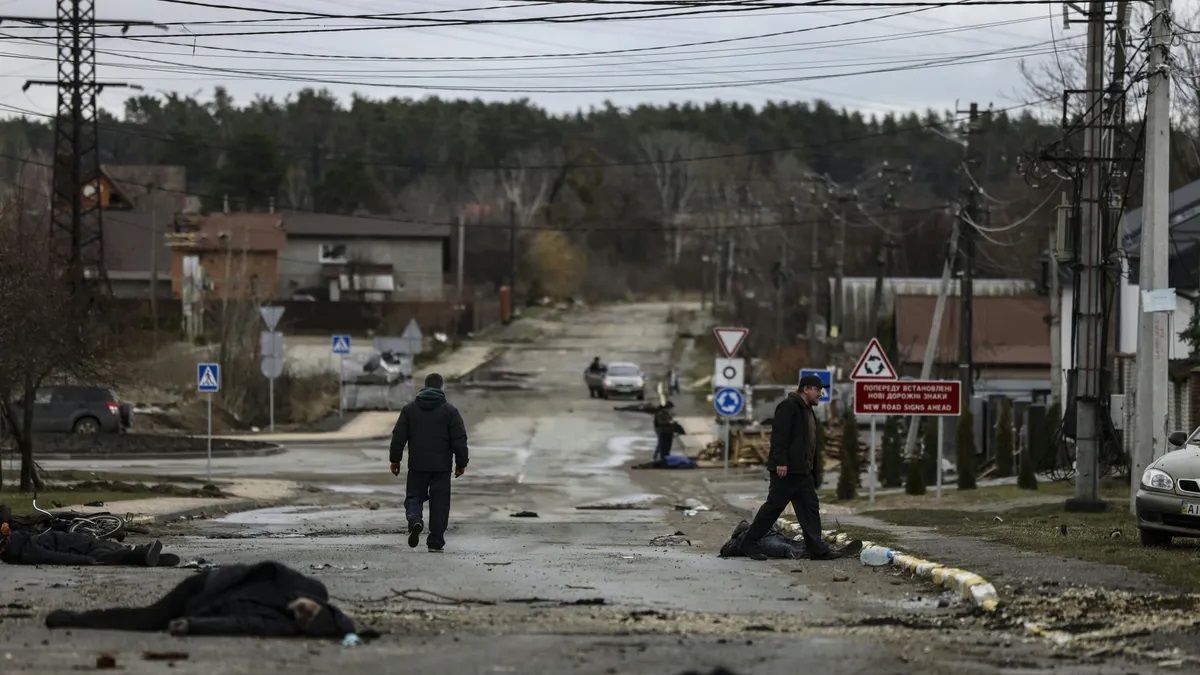They emerged after WWIIat the same time that the Nuremberg International Tribunal was implemented to judge Nazi crimes.
Those notions are at the heart of the competencies of the International Criminal Court (ICC)which opened an investigation into the situation in Ukraine on March 3.
They can also depend on national jurisdictions when they have powers in matters of universal justice, as is the case in Germany, Belgium, Spain, France or Switzerland.
“War crimes” are defined as serious violations of international law committed against civilians or combatants in an armed conflict, and which generate the individual criminal responsibility of their perpetrators.according to the UN High Commissioner for Human Rights.
These crimes correspond to violations of the Geneva Conventionadopted in 1949, after the Second World War.
Its most recent codification is found in article 8 of the Rome Statute 1998, founder of the ICC.
This article defines more than 50 examples of war crimes, including homicide, torture, kidnapping, the use of child soldiers, illegal deportations, intentional attacks against civilians, rape, looting or intentional attacks against humanitarian aid or peacekeeping missions.
War crimes are also the use of prohibited weaponswho “cause useless suffering” or strike “indiscriminately.”
The ICC, whose headquarters are in The Hague, was created in 2002, and is in charge of judging these crimes as well as crimes against humanity and genocide.
The notion of crime against humanity was created and defined on August 8, 1945 by article 6 of the statutes of the Nuremberg International Tribunal.
This crime is defined as “murder, extermination, enslavement, deportation or any other inhuman act committed against any civilian population, before or during war, or persecution for racial or religious reasons.”
It was created retrospectively to try Nazi criminals whose crimes had not previously been imagined.
Now this notion has been codified in article 7 of the Rome Statute, which determines that crimes against humanity are acts such as murder, rape, persecution and other inhumane acts committed “within the framework of a widespread or systematic attack voluntarily launched against any civilian population”.
The term “genocide” was used from a legal point of view for the first time in the Nuremberg trial to designate the extermination of the Jews.
It then became an integral part of international law in 1948 under the UN Convention for the Prevention and Punishment of the Crime of Genocide.
It describes genocide as a “crime committed with the intent to destroy in whole or in part a national, ethnic, racial or religious group.”
Example of genocide convictions:
– In November 1994, the UN created the International Criminal Tribunal for Rwanda (ICTR) based in Arusha (Tanzania) and four years later the ICTR pronounces the first life sentences, which constitute a first recognition of the genocide against the Rwandan Tutsi minority.
– the Srebrenica massacre in eastern Bosnia, during which 8,000 Muslim boys and men were killed in 1995 by Bosnian Serbs, was recognized in 2007 as genocide by the International Court of Justice (ICJ). Former Bosnian Serb political and military chiefs Radovan Karadzic and Ratko Mladic were sentenced to life.
In December 2017, the 123 member countries of the ICC (those that have ratified the Rome Statute, the United States and Russia have not) added the “crime of aggression” to the jurisdiction of international jurisdiction.
This crime typifies the attack on the sovereignty of a country by another country, and allows the persecution of its leaders.
Source: Ambito
David William is a talented author who has made a name for himself in the world of writing. He is a professional author who writes on a wide range of topics, from general interest to opinion news. David is currently working as a writer at 24 hours worlds where he brings his unique perspective and in-depth research to his articles, making them both informative and engaging.




